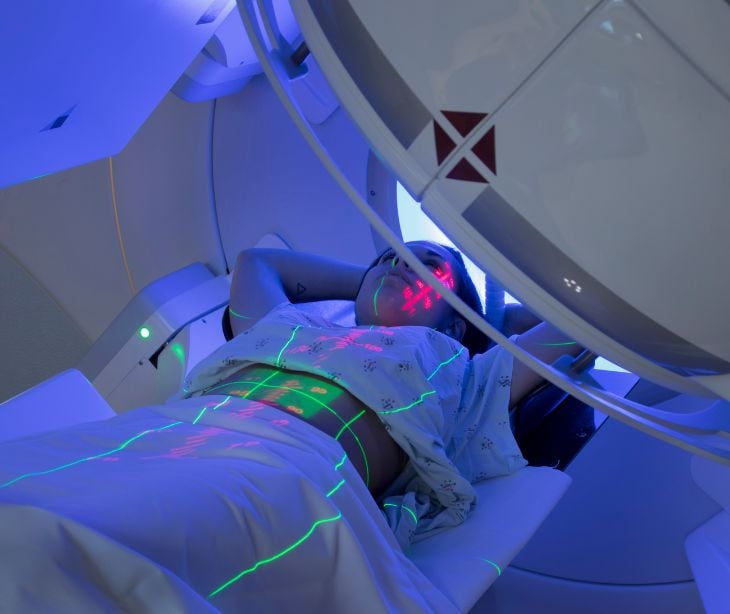2 min read
Enhancing oncology coordination with HIPAA compliant emails
Caitlin Anthoney April 23, 2024

Oncology providers can use HIPAA compliant emails to enhance oncology coordination. These emails facilitate seamless information exchange, promote collaboration, and could help improve patient outcomes while safeguarding patient privacy and confidentiality.
Communication between primary care physicians and oncologists
A mixed-methods examination of communication between oncologists and primary care providers indicated that “a gap in communication occurred between diagnosis and treatment.” Where primary care physicians (PCP) “wanted more communication with oncologists, updates on their patients' prognosis throughout treatment, and to be contacted via telephone or email and saw their role as crucial in providing supportive care for their patients.”
Specifically, “PCPs recognize that they play a critical, proactive role in supporting patients throughout the continuum of their cancer care experience, [but] existing norms regarding post-referral engagement and oncologist-PCP communication often hinder activation of this role among PCPs.”
The study concludes “Expected standards regarding the method, frequency, and quality of post-referral communication should be jointly articulated and made accountable between PCPs and oncologists to help improve cancer patients' quality of care, particularly in minority communities.”
Evidently, coordination between oncologists, nurses, radiologists, and other specialists can significantly impact patient outcomes and the overall quality of care. However, providers must adhere to HIPAA standards to protect patient privacy while exchanging sensitive medical information. Providers can use HIPAA compliant emails to communicate and collaborate, to streamline coordination and enhance patient care.
HIPAA compliant emails
Secure communication channels
HIPAA compliant email platforms, like Paubox, use encryption to protect PHI during transmission and at rest. By using encrypted email, oncology providers can securely share patient records, lab results, imaging reports, and treatment plans without the risk of unauthorized access or interception.
Efficient information exchange
Traditional methods of communication in healthcare, like faxing or mailing patient records, can be time-consuming and prone to errors. So, providers can use HIPAA compliant emails to exchange information in real-time for faster decision-making and treatment planning.
Enhanced collaboration
Effective oncology care often requires multidisciplinary collaboration among various specialists, including medical oncologists, radiation oncologists, surgeons, and pathologists. HIPAA compliant emails provide a centralized platform for these providers to communicate, share insights, and collaborate on treatment strategies while protecting patient privacy.
Improved patient engagement
In addition to facilitating provider communication, HIPAA compliant emails can also enhance patient engagement. Providers can securely communicate with patients regarding appointment reminders, medication instructions, and follow-up care.
Read also: Using email to improve follow-ups in cancer screening
Compliance and risk mitigation
HIPAA compliant email solutions, oncology providers can mitigate the risk of HIPAA violations. Non-compliance can result in severe penalties including hefty fines and reputational damage for healthcare organizations.
Go deeper: What are the penalties for HIPAA violations?
Streamlined administrative processes
HIPAA compliant email platforms can be integrated with electronic health record (EHR) systems, allowing for streamlined administrative processes. This integration eliminates the need for manual data entry which could help reduce the likelihood of errors, potentially saving time and resources for oncology practices.
FAQs
What does HIPAA compliance mean?
HIPAA compliance means adhering to the regulations set by HIPAA to ensure the privacy, security, and availability of protected health information (PHI).
What is PHI?
PHI stands for protected health information and includes any information in a medical record that can be used to identify an individual.
What is an electronic health record (EHR)?
An EHR is a secure, centralized repository of a patient's health journey, promoting a collaborative approach to healthcare, reducing medical errors, and improving the accuracy of diagnoses. Its interoperability allows for seamless sharing of patient information across different healthcare settings, which could lead to better coordination of care and improved patient outcomes.
Read also: The difference between EMRs and EHRs
Subscribe to Paubox Weekly
Every Friday we bring you the most important news from Paubox. Our aim is to make you smarter, faster.




